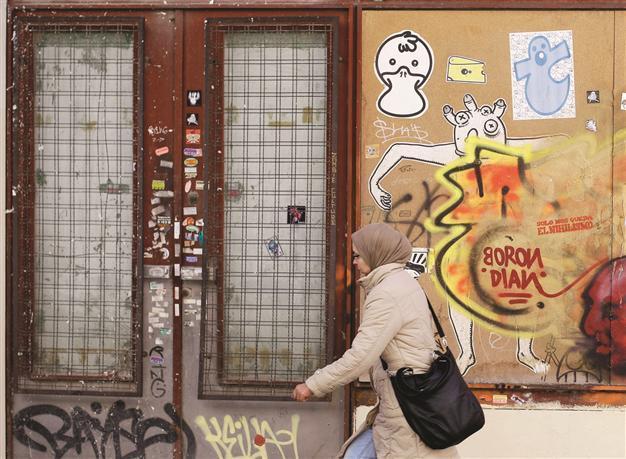Spain sees recession in first quarter
MADRID - Agence France-Presse

AP Photo
Spain’s jobs-scarce economy plunged back into recession in the first quarter of 2012 as employment slumped even further, the Bank of Spain said yesterday.Barely two years after emerging from the last downturn, Spain slid into recession again with two consecutive quarters of economic contraction, the central bank said in a report.
Gross domestic product fell by an estimated 0.4-percent in the first quarter of 2012 after a 0.3-percent decline in the last three months of 2011, the bank said.
Spain, whose unemployment rate at the end of 2011 was already the highest in the industrialised world at 22.85 percent overall and nearly 50 percent for the young, suffered a further jobs slump.
“Employment fell again, sharply, with an estimated year-on-year decline of 4.0 percent,” the report said, noting also a “significant” decline in unit labor costs.
The government forecasts the jobless rate will rise to 24.3 percent this year as the sagging economy struggles to absorb millions of jobs destroyed in the collapse of a property boom in 2008.
The European Central Bank had helped to ease market tensions, Spain’s bank said, alluding to the ECB’s decision to extend more than one trillion euros ($1.32 trillion) in low-interest, three-year loans to the region’s banks.
Worries were further soothed by an international rescue program for Greece, by the restructuring of Greek debt and by eurozone economic governance reforms, it said.
“Nevertheless, the instability returned in the first days of April, affecting Spain and Italy with particular strength, because of doubts raised by the adjustment process in which both countries find themselves.” New tensions pushed the borrowing rate on Spain’s benchmark 10-year government bonds above a symbolic 6-percent threshold, the central bank noted.
Investors in Spanish 10-year bonds demanded an additional return of about 440 basis points when compared to German bonds, it said.
At the same time, the stock market has slumped by about 20 percent since the beginning of the year.
The decline intensified Monday as Madrid’s IBEX-35 index of leading shares slumped 200.10 points, or 2.84 percent, to 6,840.50 points late morning, hit by concerns over the French presidential election and Spain’s debt.
















